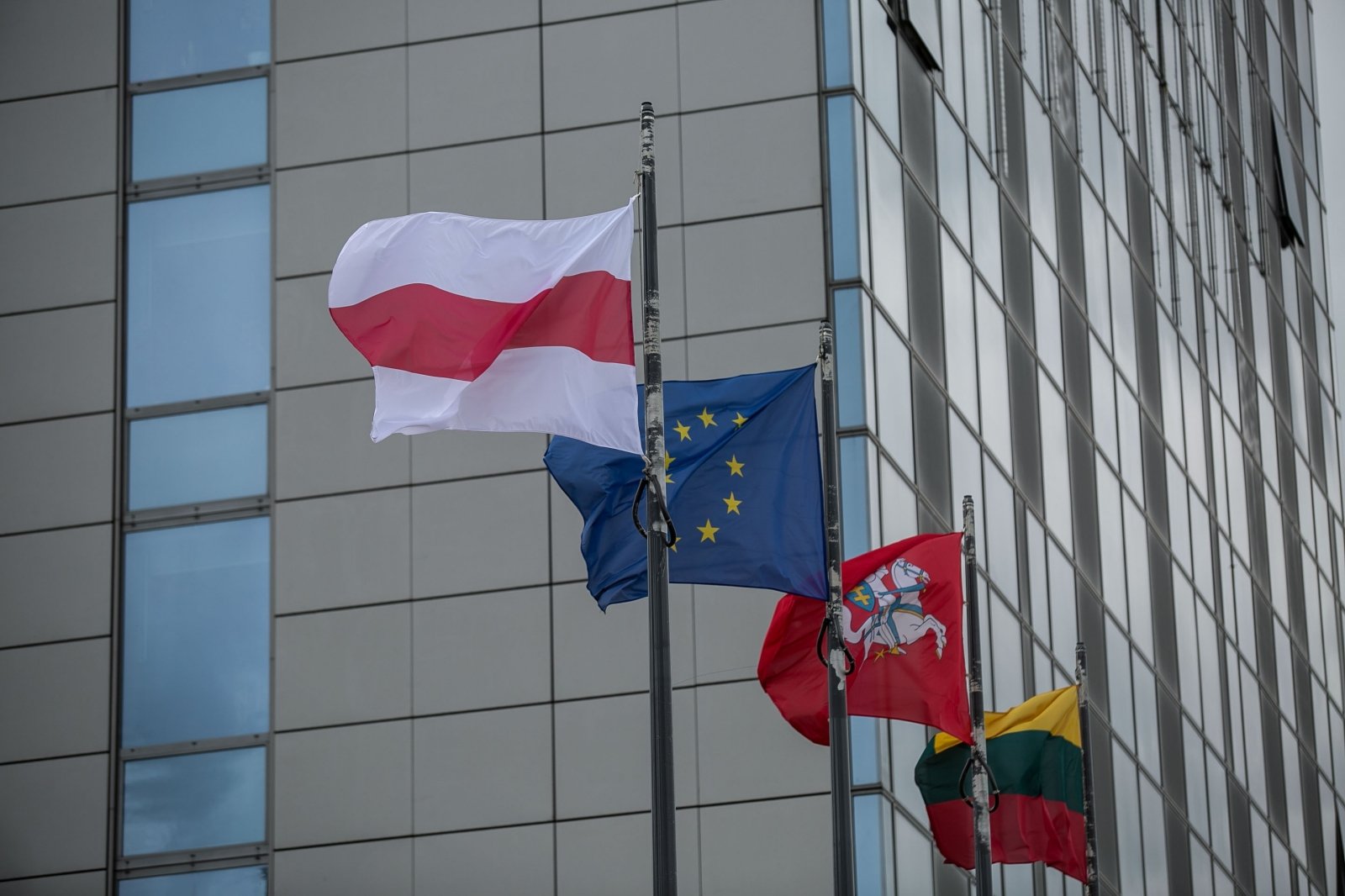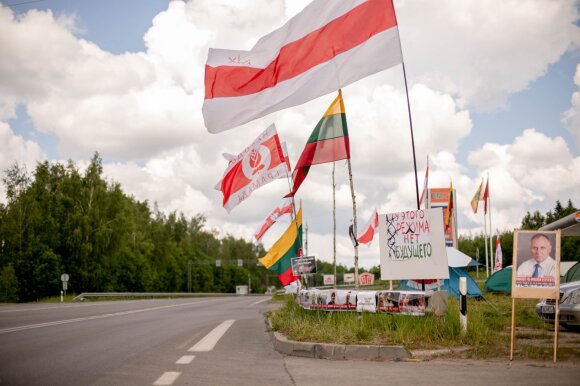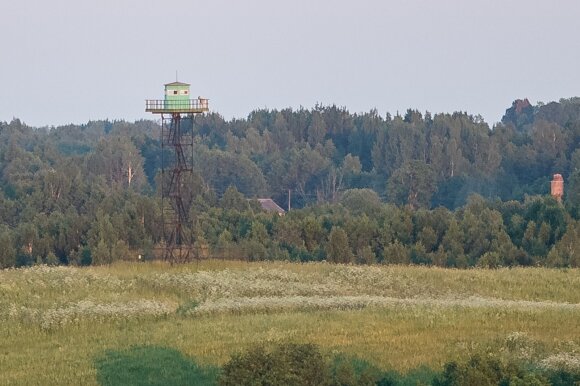Probably the EU’s first reaction after the illegal landing of a Ryanair plane was a ban on Belarusian airlines from entering Belarusian territory. In addition, a number of EU countries immediately stated that their planes would also not be able to fly through Belarus, both for security reasons and to punish Belarus itself, as the latter would no longer be able to provide transit services. This position was shared within the European Union itself, which in turn called on all European authorities to “adopt the necessary measures to ban Belarusian airlines from EU airspace and prevent them from entering EU airports”. The European Union has also appealed individually to all EU carriers to refrain from flying over Belarusian airspace.
However, this ban could have serious consequences for the democratic opposition in Belarus and for civil society remaining in Belarus. Belarus also, for its part, further fueled the isolation of its country by restricting movement across its continental borders with all surrounding states except Russia. As a result, flights to the nearest countries have remained probably the only way to leave the country in the event of political persecution, and if this opportunity is closed, Belarus could turn into some closed and isolated territory, which will be very difficult for people unwilling or unable to leave. True, the ban on Belarusians leaving the country is still not absolute and the possibility of leaving Belarus outside the EU still remains. It is for this reason that intentions to travel to the countries of the South Caucasus or Turkey can be heard more and more among the people of Belarus, as these are currently probably the only remaining flight alternatives.
Aliaksandr Lukashenko
–
What innovations will the fourth package of sanctions bring?
At the same time, in response to the forced landing of a Ryanair flight in Minsk last month and the arrest of journalist Romano Protasevičius, the European Union reached an agreement to impose a new package of sanctions on Belarus. The essential difference is that previous sanctions imposed, such as in the third package of sanctions, were of a political nature and targeted at specific individuals closely associated with the regime. Despite the fact that the freezing of influential politicians’ accounts in European banks and the ban on travel within the EU have partly affected the economy of the country as a whole, the measures taken so far have been targeted at avoiding harm to the rest of the population. Although this measure is still in place and the list of sanctioned persons is constantly being updated, including even the relatives of Alexander Lukashenko himself, the question remains as to how effective these sanctions are. In addition, the EU has long confined itself to sanctions of a political nature and the continuing risk that broader economic sanctions will force Belarus to turn even further to Russia.
However, it is becoming clear that the measures taken so far have not fully lived up to expectations, and this time the Belarusian economy is also being targeted, given the calls of the Belarusian opposition and the unpredictable actions of Alexander Lukashenko. This is important from the perspective of the purpose of the sanctions themselves – they do not seek to punish the state as economically or politically as possible, but are expected to change the behavior of the state. EU foreign ministers meeting said that a large majority of EU member states support further sanctions, but that the EU still needs to gather enough evidence of the crimes of each individual and company to provide legally sound and accurate lists of those responsible. In addition, these new sanctions are aimed at restricting potassium, which is Belarus’s main export material, and will also limit the ability of EU countries to buy tobacco products, oils and oil-related products from Belarus. This should naturally harm not only Belarus, but also Lithuania, whose railways and seaport have been used for the transit and export of these products. On the other hand, it is expected to change the behavior of Belarus in this way, and the passive reaction of Lithuania and the EU to the recent events in Belarus can be interpreted as a sign of weakness, which would make the regime’s actions even more drastic in the future.
EU foreign policy chief Josep Borrell also told MEPs earlier that the European Union was likely to impose new economic sanctions on Belarus as early as June. If the EU governments reach an agreement at the political level, the list of sanctions will be supplemented by a ban on new loans to Belarus, restrictions on EU trade and investment relations with Belarus, and a ban on EU banks providing investment services.
–
However, this is not the only economic instrument used by the European Union, as the illegal presidential elections and persistent human rights violations have forced a review of the funding provided by the EU institutions to strengthen democracy in the country. As early as 2020, the European Union cut off its one million million in direct financial assistance to Belarus. In addition, Belarus received support both as a member of the Eastern Partnership program and as a country affected by the COVID-19 pandemic. It is also important that the suspended support for Belarus will reach this country in another way – more than 24 million. € 1 billion is currently being redistributed to NGOs and civil society organizations in the form of projects.
However, in order to respond to the problem of Belarus’s dependence on Russia, the exclusive and constant application of sanctions is not the most effective way to do so. Thus, applying the gingerbread and whip principle, gingerbread is represented in this case by a potential financial support package, but its use still depends on Belarus itself. In order to create some counterweight to Russia’s growing influence and at the same time motivate Belarusian society, EU Commission President Ursula von der Leyen announced in May this year that the EU would allocate as much as € 3 billion to Belarus. EUR in the form of investments, projects and loans in the event that Belarus moves to a model of democratic governance. Naturally, Alexander Lukashenko himself should step down in this case, as confidence in this politician in Belarus is one of the lowest in his entire term of office, and his own actions are clearly not leading to democracy in the country.
Lithuania’s cry in the face of the migrant crisis
Assessing the situation from a security perspective, both NATO and the European Union are primarily seeking to avoid an even deeper integration of Belarusian military into Russian military structures, which could lead to the emergence of permanent Russian military forces and equipment on Belarusian territory. However, now no less important security challenge for Lithuania has arisen due to illegal migration of third-country nationals to the territory of Lithuania. Naturally, such uncontrolled migration poses a risk of humanitarian crises, smuggling and even terrorist attacks.
–
Although Lithuania, in turn, has already provided additional funding and human capabilities for the protection of its eastern border, it is clear that Lithuania has not yet faced the challenge of illegal migration on this scale. Furthermore, as this migration crisis is caused and supported at the state level in Belarus, it is not clear to what extent this problem may become in the future. The good news is that Lithuania’s cry for help in Europe has already been heard. The European Border and Coastal Agency, Frontex, is currently sending its additional capacity to border guards, which is expected to reach at least 40 in the coming month alone. It is also worth noting the bilateral assistance promised by the Greek Foreign Minister Nikos Dendias, who visited Lithuania in June. According to the Minister, Greece has already accumulated extensive experience in the field of managing illegal migration, which is why it is ready to assist Lithuania both from a technical and expert point of view.
–




